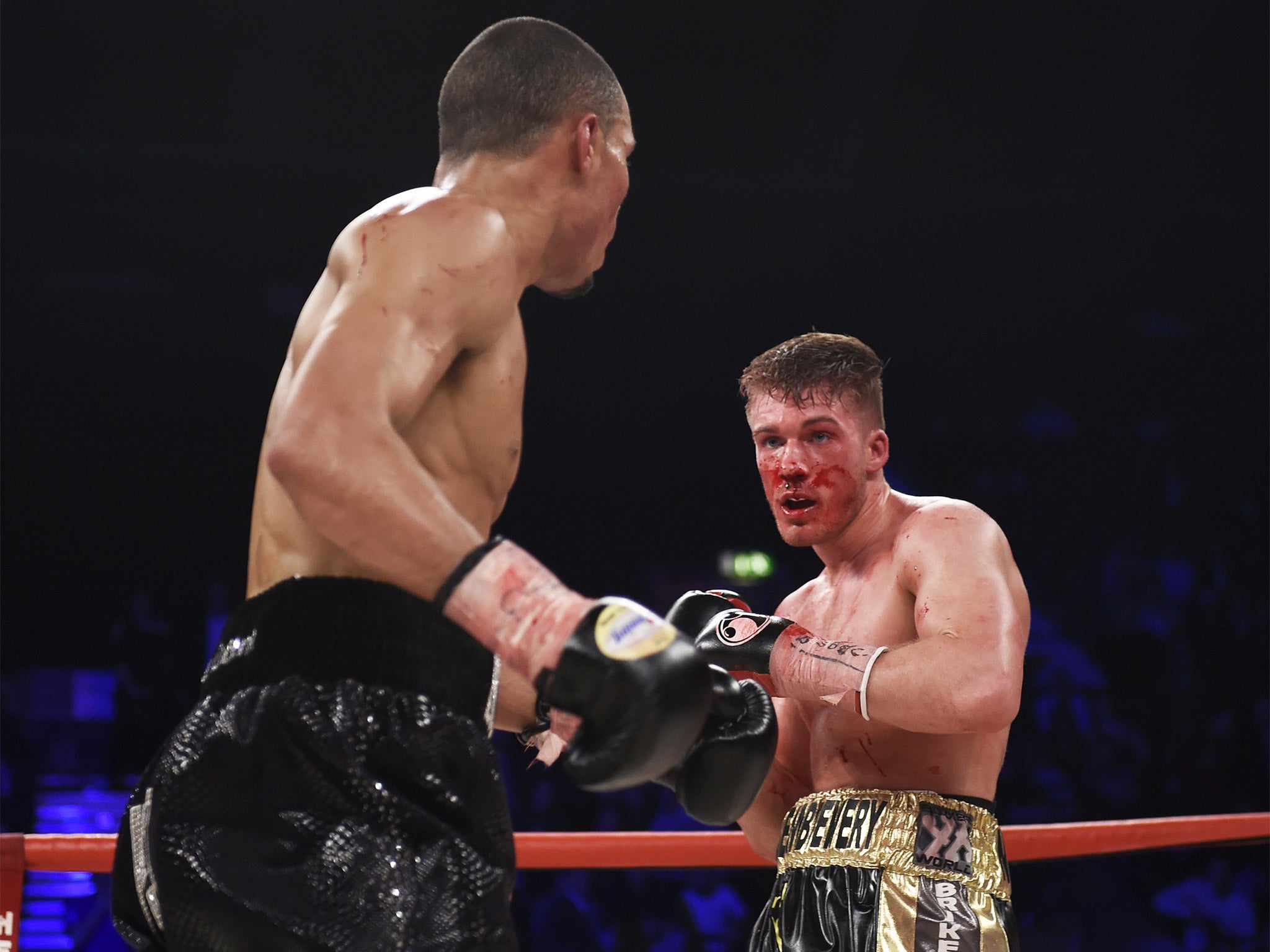The Independent's journalism is supported by our readers. When you purchase through links on our site, we may earn commission.
Boxing and American football: why I can't watch the brain-bashing
I used to watch American football, but now I've stopped: I can't pretend any longer that head injuries aren't an unavoidable part of the game


It was a moment to change minds: Chris Eubank Sr going in the ring to tell his son, "You're not going to take him out to the face, you're going to take him out to the body." Two rounds later the referee stopped the fight and Eubank Jr’s opponent, Nick Blackwell, collapsed. He was taken to hospital and put in an induced coma to try to save him.
Yes, the referee should have stopped the fight earlier. But that is detail. The audience that pays for boxing should have stopped watching the sport long ago. I know because I have stopped watching American football. It has given me such pleasure since I started following the beautiful brawl, without understanding the rules, when Channel 4 bought it to fill its late schedule in 1982. But last season I didn’t watch it – well, hardly, apart from the first half of the Super Bowl.
My “Chris Eubank Sr” moment came two years ago when I read Collision Low Crossers, an account of a year with the New York Jets. I discovered that NFL players do not tackle each other in training because it is too dangerous. This shouldn’t have come as a surprise. I knew that head injuries were an unavoidable part of the game. Helmet-to-helmet collisions have a similar effect to punches to the head. I knew, although I tried to pretend I didn’t, that nearly 30 per cent of all NFL players will suffer some form of dementia.
A few weeks later I read David Remnick’s long interview with Barack Obama. At one point the President, travelling on Air Force One, was watching the Miami Dolphins versus the Carolina Panthers, and Remnick asked if he didn’t feel at all ambivalent about following the sport. “I would not let my son play pro football,” he said. “But, I mean, you wrote a lot about boxing, right? We’re sort of in the same realm.”
Well yes, we are, I thought. And I don’t watch boxing. Obama went on: “These guys, they know what they’re doing. They know what they’re buying into. It is no longer a secret. It’s sort of the feeling I have about smokers, you know?”
I know he is the coolest president ever, possibly even the best president in modern history, but this seemed to lack some of the moral subtlety of which we know he is capable. They know what they are doing; it’s a route out of the ghetto for poor black athletes; the risk of brain injury is worth it for the stupendous rewards of the NFL. Strangely, to hear such a poor argument from someone I admire so much was decisive for me.
I watched the season before last, and enjoyed it, but told myself it was the end. The rules had been changed again to try to make the game safer, and to minimise helmet-to-helmet collisions. But they cannot be eliminated. The point of American football is that all players are able to block – that is, crash into – their opponents, to create space for their comrades to run with the ball or to catch it.
The game is safer than it used to be. When it started to become popular around 1900 in rust-belt America, players would be killed. Even in my early Channel 4 days, legs would be broken often enough for me to know to avoid watching the slow-motion replays. Now it is about as safe as it can be, apart from the head injuries.
I am just armchair bloke in all this, but I’d like to see an experiment of going back to pre-helmet days of rugby- or taekwondo-style padded headgear. Head-to-head collisions would be less jarring and players would feel less invincible (which is, apparently, one of the causes of collisions). But I cannot imagine the NFL making such a dramatic change – and some people say it would just mean more neck injuries instead.
In any case, this month’s call from public health academics for “contact rugby” to be banned for under-18s suggests that reducing the harm of American football to the level of rugby may not be enough. Their concern is the same: “A link has been found between repeat concussions and cognitive impairment and an association with depression, memory loss and diminished verbal abilities.”
I tend to be against banning things. My friend who is a neurosurgeon – he used to try to repair broken heads at London Hospital when they were blue-lighted down Cambridge Heath road from York Hall in Bethnal Green – was opposed to banning boxing because it would drive it underground, making it more dangerous.
So, no, I wouldn’t ban boxing, or rugby, or (as if) American football. But people who watch sport should do so with their eyes open.
Join our commenting forum
Join thought-provoking conversations, follow other Independent readers and see their replies
Comments
Bookmark popover
Removed from bookmarks